 What’s it like for a priest to be told that the Pope wants him to be a bishop? The newly-appointed bishop of Hildesheim, Fr. Heiner Wilmer SCJ tells his story:
What’s it like for a priest to be told that the Pope wants him to be a bishop? The newly-appointed bishop of Hildesheim, Fr. Heiner Wilmer SCJ tells his story:
“On Monday afternoon, 5 March, I was in Manchester (Stockport), on an official pastoral visit to my fellow brothers. On the evening before I had extensively spoken with the Sacred Heart priests (Dehonians) about the young Friedrich Engels and the suffering of the workers in the Manchester textile mills, as well as the successes of football club Manchester United. I had had a good breakfast that morning, and the short homily I had prepared about the Syrian Naaman, from the second book of Kings, was also ready for the 9:30 Mass. I wanted to speak about the God of surprises and that things could turn out different from what one expects.
There was a note with a strange phone number from Germany on my desk, with a cryptic name, half-Italian, half-German. “Signore Heinz-Guntr asks you to ring him back”. At first I wanted to leave it, as I dislike ringing back strange numbers without reasonable names. But then I thought, let’s just call back quickly, and have it done with. And then everything changed completely.
On the other end of the line was auxiliary Bishop Heinz-Günter Bongartz. Even though I had not met him before, his northern German tongue was immediately familiar to me. After a brief introduction he came to the point: “Dear Father Wilmer! The cathedral chapter of Hildesheim has elected you as new bishop. The Holy Father sent us your name in a list of three. We ask you to accept the election.” – “What? Just a moment. This can’t be true. I am a man of the Order. Three years ago I was elected as superior general of our order. I promised the brothers to give my best for the next six years…” Oh well, a lot could be said about this. In short: I told him that I needed time. I didn’t understand any of it. I let Monday pass, and Tuesday as well.
On Wednesday morning, at five a.m., I wrote a letter to Pope Francis. I was in Dublin by then. Also on a pastoral visit. I wrote the Pope that the Diocese of Hildesheim’s trust in me moved me, but that it troubled me to have to leave my brothers during my time in office. I also asked for his paternal counsel. In the course of the afternoon I sent the letter to the Congregation for Bishops. There they told me that Cardinal Ouellet would personally give it to Pope Francis in three days, and that I could expect a response in five to seven days.
But the Holy Father also surprised me. On the same Wednesday, only a few hours later, he rang me on my mobile. He understood my conflict of conscience. He said. “I know your community. I will not pressure you. Pray to your founder Father Dehon. Go to the chapel. Have Adoration, which is so important in your community and think of the brothers in your order who were bold and courageous in the past.” So I did. I understood. Late that evening I rang Bishop Bongartz and agreed.”
The appointment of Bishop-elect Heiner Wilmer was announced at noon today. He succeeds Bishop Norbert Trelle, who led the Diocese of Hildesheim for 12 years until his retirement in September of last year. In a rare occurance, the choice did not fall on a priest or bishop from Hildesheim or one of the other German dioceses. The new bishop, although a native German, comes to Hildesheim from Rome, where he worked as Superior General of the Congregation of the Priests of the Sacred Heart, also known, after their founder, as the Dehonians. This order is focussed on working for the poor and the young, using “education, social work, missions, spirituality and media to announce the kingdom of God.” They live in communities where Adoration of the Blessed Sacrament plays an important part.
Heiner Wilmer was born on April 9 1961 (his appointment comes three days before his 57th birthday) in Schapen, a town of some 2,000 inhabitans in the Emsland, Diocese of Osnabrück, which borders Hildesheim to the west. In 1980, Wilmer entered the Congregation of the Priests of the Sacred Heart, spending his novitiate in Freiburg im Breisgau. He made his permanent vows in 1985. Preparing for his ordination to the priesthood in 1987, he studied theology in Freiburg and Romanistics in Paris, receiving his pastoral formation in St. Peter’s seminary in Schwarzwald. As a priest, Fr. Heiner remained devotied to his studies. He studied French philosophy in Rome from 1987 to 1989, received a promotion in fundamental theology in Freiburg in 1991, studied history there from 1991 to 1993, concluding it with his first state exam in history and theology. From 1993 to 1995 he worked as a teacher in training at the Windthorst Gymnasium in Meppen. After his second state exam, he was a full-fledged teacher at the Liebfrauenschule in Vechta. In 1997 and 1998, Fr. Heiner worked as a teacher of German and history at the Fordham Preparatory School of the Jesuit High School in the Bronx, New York. From 1998 to 2007 he led the Gymnasium Leoninum in Handrup, a private Catholic school run by the Dehonians. In the latter year he was appointed as provincial of the German province of his order, seated in Bonn, and in 2015 he was elected as Superior General of the Dehonians, relocating to Rome. Hildesheim’s 71st bishop is a man of learning, and of the world.
Despite his travels, the Diocese of Hildesheim is largely new territory for Bishop-elect Wilmer, although he visited it when he was head of the Handrup school, visiting schools in Hannover and other places. His last visit was in the summer of 2017, when he spent his holiday in Celle, northeast of Hannover. “I remember best having ice cream in the shadow of Wienhausen Monastery, despite the rain.”
Asked what he will bring to Hildesheim, the bishop-elect says:
“An open ear. That is the most important to me. I want to listen, to understand, to enquire. The old tradition of the “Sh’ma Israel” (Hear, Israel!) has characterised my religious life from the beginning.
[…]
Central to me is the adoration of the Heart of Jesus and through that the devotion to a God who became man. Hence it is important to me that every person comes into himself, becomes fully himself. Daily Adoration of the Blessed Sacrament, time for silence and contemplation characterise my daily rhythm and keep me from chaos and activism.”
From his time in Rome, where he lived with 61 from 20 countries he brings a confidence in the other and an eye for strangers in a strange land.
“And what also formed me as a northern German in Rome is the Italian “serenità”: a cheerful serenity and a serene cheerfulness. A northern German comes from the south. One who is confident that God goes with him!”
Bishop-elect Wilmer will be the fourth German bishop who is a member of a religious order. He joins Bishops Gregor Maria Hanke of Eichstatt and Dominicus Meier, auxiliary of Paderborn, who are both Benedictines, and Bishop Stefan Oster of Passau, a Salesian.
The consecration and installation of the new bishop will probably take place in September, but an exact date is yet to be announced.
With today’s appointment, all vacant dioceses in Germany are filled again. But this is not a situation that is not likely to last long. In Fulda, Bishop Heinz Josef Algermissen turned 75 in February, and his already sent his resignation to Rome.
Like this post? Think of making a donation! 
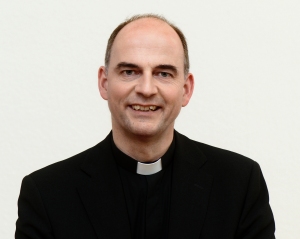 Msgr. Franz Jung has been appointed as Bishop of Würzburg after a relatively short vacancy of only five months. The vicar general of Speyer succeeds Bishop Friedhelm Hofmann, who retired in September, as the 89th bishop of the northern Bavarian diocese.
Msgr. Franz Jung has been appointed as Bishop of Würzburg after a relatively short vacancy of only five months. The vicar general of Speyer succeeds Bishop Friedhelm Hofmann, who retired in September, as the 89th bishop of the northern Bavarian diocese.
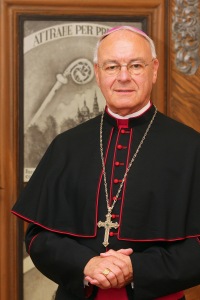 The retirement and appointment of bishops is pretty easy to predict, as bishops are legally bound to offer their resignation when they reach the age of 75. Locally, there are currently three dioceses without a bishop: Roermond in the Netherlands, and Hildesheim and Würzburg in Germany. In 2018, two more will likely join these: in Fulda, Bishop Heinz Josef Algermissen (at right) will celebrate his 75th on 15 February, and in Namur, Bishop Remy Vancottem will do likewise on 25 July. A third likely diocese to fall vacant in Ghent. Bishop Luc van Looy will turn 77 on 28 September. Upon his 75th birthday, the diocese made it known that Pope Francis had requested the bishop stay on for two more years, and that extension is up this year.
The retirement and appointment of bishops is pretty easy to predict, as bishops are legally bound to offer their resignation when they reach the age of 75. Locally, there are currently three dioceses without a bishop: Roermond in the Netherlands, and Hildesheim and Würzburg in Germany. In 2018, two more will likely join these: in Fulda, Bishop Heinz Josef Algermissen (at right) will celebrate his 75th on 15 February, and in Namur, Bishop Remy Vancottem will do likewise on 25 July. A third likely diocese to fall vacant in Ghent. Bishop Luc van Looy will turn 77 on 28 September. Upon his 75th birthday, the diocese made it known that Pope Francis had requested the bishop stay on for two more years, and that extension is up this year.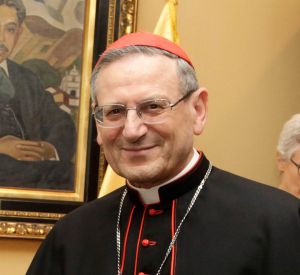 While all hold memberships in various dicasteries in the curia, two of these sit at the head of them: Cardinal Coccopalmerio is president of the Pontifical Council for Legislative Texts and Cardinal Amato (at left) is the prefect of the Congregation for the Causes of Saints. Cardinal Nguyễn Văn Nhơn remains active as archbishop of Hanoi. All will undoubtedly retire upon their 80th birthday, opening up some interesting positions in the curia. Barring any deaths, the number of cardinal electors will stand at 114 by mid-2018. Possibly not low enough for a new consistory by itself, but considering the fact that a further 10 ill age out in 2019, Pope Francis may decide to be proactive and call a consistory in autumn for the creation of anywhere between 6 and 16 new cardinals.
While all hold memberships in various dicasteries in the curia, two of these sit at the head of them: Cardinal Coccopalmerio is president of the Pontifical Council for Legislative Texts and Cardinal Amato (at left) is the prefect of the Congregation for the Causes of Saints. Cardinal Nguyễn Văn Nhơn remains active as archbishop of Hanoi. All will undoubtedly retire upon their 80th birthday, opening up some interesting positions in the curia. Barring any deaths, the number of cardinal electors will stand at 114 by mid-2018. Possibly not low enough for a new consistory by itself, but considering the fact that a further 10 ill age out in 2019, Pope Francis may decide to be proactive and call a consistory in autumn for the creation of anywhere between 6 and 16 new cardinals.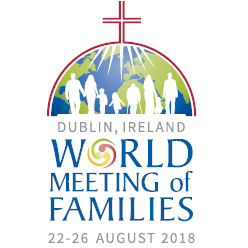 Speaking about the pope, he will, despite the fact that he has no love for travelling, visit several countries in 2018. In January, he will once again return to South America, visiting Peru and Chile. Ireland is on the schedule in August, when the Holy Father will attend the World Meeting of Families taking place in Dublin (logo at right). Visits not yet confirmed are to the Baltic countries in September and to Romania in December. A visit to India also remains an option, but as Pope Francis has just wrapped a visit to India’s neighbouring countries of Myanmar and Bangladesh, it may not be at the top of the list.
Speaking about the pope, he will, despite the fact that he has no love for travelling, visit several countries in 2018. In January, he will once again return to South America, visiting Peru and Chile. Ireland is on the schedule in August, when the Holy Father will attend the World Meeting of Families taking place in Dublin (logo at right). Visits not yet confirmed are to the Baltic countries in September and to Romania in December. A visit to India also remains an option, but as Pope Francis has just wrapped a visit to India’s neighbouring countries of Myanmar and Bangladesh, it may not be at the top of the list.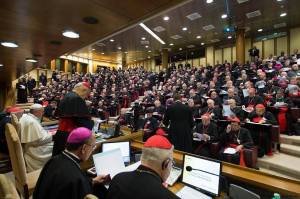 In the latter part of the year, all eyes will be on the Synod of Bishops again, this while the reverberations of the last two assemblies of that body are still being felt. The October 2018 Fifteenth Ordinary General Assembly of the Synod of Bishops while focus on “Young People, Faith and Vocational Discernment”. To this assembly, each bishops’ conference will elect one or more (depending on their size) delegates, while the Pope will also make a personal selection of delegates. One of these personal choices has already been made: Sérgio Cardinal Da Rocha, the archbishop of Brasília, was appointed as Relator General of next year’s assembly. He will outline the theme at the start of the assembly and summarise the delegates’ speeches so they can be condensed into concrete proposals.
In the latter part of the year, all eyes will be on the Synod of Bishops again, this while the reverberations of the last two assemblies of that body are still being felt. The October 2018 Fifteenth Ordinary General Assembly of the Synod of Bishops while focus on “Young People, Faith and Vocational Discernment”. To this assembly, each bishops’ conference will elect one or more (depending on their size) delegates, while the Pope will also make a personal selection of delegates. One of these personal choices has already been made: Sérgio Cardinal Da Rocha, the archbishop of Brasília, was appointed as Relator General of next year’s assembly. He will outline the theme at the start of the assembly and summarise the delegates’ speeches so they can be condensed into concrete proposals.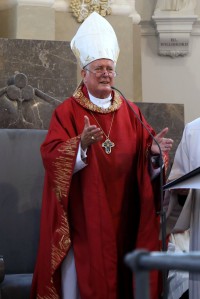 As announced by the Nuncio yesterday, the retirement of Bishop Friedhelm Hofmann will begin today. The bishop of Würzburg, who celebrated his 75th birthday in May, has been at the helm of the diocese for 13 years.
As announced by the Nuncio yesterday, the retirement of Bishop Friedhelm Hofmann will begin today. The bishop of Würzburg, who celebrated his 75th birthday in May, has been at the helm of the diocese for 13 years.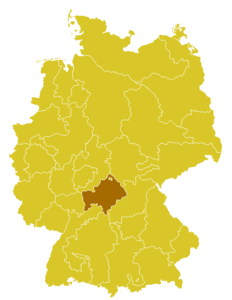 Würzburg is the second diocese, after Hildesheim, to fall vacant after a brief spell in which every German diocese had a bishop at its head. When the retirement of Bishop Hofmann begins, at noon today, auxiliary bishop Ulrich Boom will be in charge until the cathedral chapter has chosen an administrator to oversee current affairs until a new bishop has been appointed. Würzburg is the northernmost diocese in Bavaria and a part of the Church province of Bamberg.
Würzburg is the second diocese, after Hildesheim, to fall vacant after a brief spell in which every German diocese had a bishop at its head. When the retirement of Bishop Hofmann begins, at noon today, auxiliary bishop Ulrich Boom will be in charge until the cathedral chapter has chosen an administrator to oversee current affairs until a new bishop has been appointed. Würzburg is the northernmost diocese in Bavaria and a part of the Church province of Bamberg. ^Bishop Trelle, centre, is pictured here with Archbishop Stefan Heße of Hamburg, who preached during the birthday Mass, and Archbishop Nikola Eterovic, the nuncio.
^Bishop Trelle, centre, is pictured here with Archbishop Stefan Heße of Hamburg, who preached during the birthday Mass, and Archbishop Nikola Eterovic, the nuncio.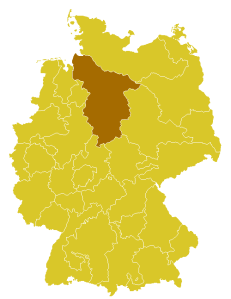 Bishop Trelle has stood at the head of the Diocese of Hildesheim for almost 12 years. Appointed in 2005, he was previously an auxiliary bishop of Cologne for more than 13 years. Like other bishops in and around Germany, he was confronted with dwindling numbers of faithful, which led him to reducing the number of parishes from 313 to 119, and closing some 50 churches. Priests in Hildesheim are now rarely attached to a single parish or location, but are responsible for clusters of parishes and communities, working in pastoral teams.
Bishop Trelle has stood at the head of the Diocese of Hildesheim for almost 12 years. Appointed in 2005, he was previously an auxiliary bishop of Cologne for more than 13 years. Like other bishops in and around Germany, he was confronted with dwindling numbers of faithful, which led him to reducing the number of parishes from 313 to 119, and closing some 50 churches. Priests in Hildesheim are now rarely attached to a single parish or location, but are responsible for clusters of parishes and communities, working in pastoral teams.

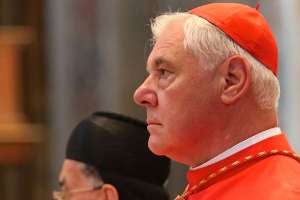 Suddenly, an increase in rumours that Cardinal Gerhard Müller is to be let go as Prefect of the Congregation for the Doctrine of the Faith appeared tonight. Should the rumours prove true, what can we say about it now?
Suddenly, an increase in rumours that Cardinal Gerhard Müller is to be let go as Prefect of the Congregation for the Doctrine of the Faith appeared tonight. Should the rumours prove true, what can we say about it now?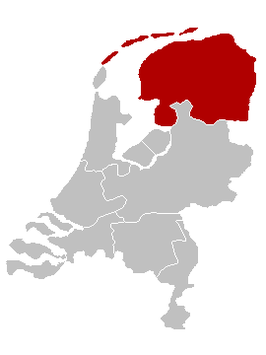 There have been years when the changes were rather significant, but 2017 does not look to be one of those. At the start of the new year, three dioceses are without a bishop: Groningen-Leeuwarden in the Netherlands (map at right), Mainz in Germany and the Territorial Prelature of Trondheim in Norway. It is a safe bet that the first two will receive their new bishops in 2017, but Trondheim may well be left as it has been for the past seven years: without a bishop, and with the bishop of Oslo serving as Apostolic Administrator. But on the other hand, for a see that just built and consecrated its new cathedral, and which, like the rest of Norway, has seen a significant increase in Catholic faithful, this does not seem like a situation that will continue forever. So who knows what the year will bring.
There have been years when the changes were rather significant, but 2017 does not look to be one of those. At the start of the new year, three dioceses are without a bishop: Groningen-Leeuwarden in the Netherlands (map at right), Mainz in Germany and the Territorial Prelature of Trondheim in Norway. It is a safe bet that the first two will receive their new bishops in 2017, but Trondheim may well be left as it has been for the past seven years: without a bishop, and with the bishop of Oslo serving as Apostolic Administrator. But on the other hand, for a see that just built and consecrated its new cathedral, and which, like the rest of Norway, has seen a significant increase in Catholic faithful, this does not seem like a situation that will continue forever. So who knows what the year will bring. There are a few bishops who will reach the age of 75 in 2017, and thus will offer their resignation. In Germany, these are Bishop Friedhelm Hofmann of Würzburg on 12 May and Norbert Trelle (at left) of Hildesheim on 5 September. Joining them is Bishop Frans Wiertz of Roermond in the Netherlands. He will be 75 on 2 December, but I would not be surprised if his retirement will be accepted earlier, as the bishop has been struggling with eye-related health problems.
There are a few bishops who will reach the age of 75 in 2017, and thus will offer their resignation. In Germany, these are Bishop Friedhelm Hofmann of Würzburg on 12 May and Norbert Trelle (at left) of Hildesheim on 5 September. Joining them is Bishop Frans Wiertz of Roermond in the Netherlands. He will be 75 on 2 December, but I would not be surprised if his retirement will be accepted earlier, as the bishop has been struggling with eye-related health problems.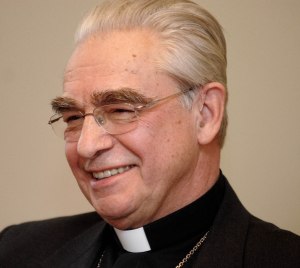 In Rome, lastly, there will be no new consistory. Only four cardinals will reach the age of 80 and so cease to be electors. They are Audrys Backis, Archbishop emeritus of Vilnius, Lithuania (and former Nuncio to the Netherlands) (at right); Raymundo Damasceno Assis, Archbishop emeritus of Aparecida, Brazil; Attilio Nicora, Pontifical Legate to the Basilicas in Assisi, Italy; and Lluís Martínez Sistach, Archbishop emeritus of Barcelona, Spain. The number of cardinals who will be able to participate in a conclave will still be 116 at the end of next year, so there will be no need to bring their numbers up.
In Rome, lastly, there will be no new consistory. Only four cardinals will reach the age of 80 and so cease to be electors. They are Audrys Backis, Archbishop emeritus of Vilnius, Lithuania (and former Nuncio to the Netherlands) (at right); Raymundo Damasceno Assis, Archbishop emeritus of Aparecida, Brazil; Attilio Nicora, Pontifical Legate to the Basilicas in Assisi, Italy; and Lluís Martínez Sistach, Archbishop emeritus of Barcelona, Spain. The number of cardinals who will be able to participate in a conclave will still be 116 at the end of next year, so there will be no need to bring their numbers up.
 A month from now, the German bishops will be meeting for their spring plenary in the city of Hildesheim, but on the eve of that meeting on the 23rd of February, seven bishops will participate in debates about various topics in seven pubs throughout the city. Whereas plenary meetings of bishops’ conferences are usually far removed from the daily lives of the faithful, they do influence it and are an arena where important issues and plans are discussed and decided. By holding such pub debates, as it were, both the conference and their topics take a few steps towards the faithful, closing the gap between them. This is, of course, further helped by the fact that entrance is free (although some pubs have a space limit)…
A month from now, the German bishops will be meeting for their spring plenary in the city of Hildesheim, but on the eve of that meeting on the 23rd of February, seven bishops will participate in debates about various topics in seven pubs throughout the city. Whereas plenary meetings of bishops’ conferences are usually far removed from the daily lives of the faithful, they do influence it and are an arena where important issues and plans are discussed and decided. By holding such pub debates, as it were, both the conference and their topics take a few steps towards the faithful, closing the gap between them. This is, of course, further helped by the fact that entrance is free (although some pubs have a space limit)…